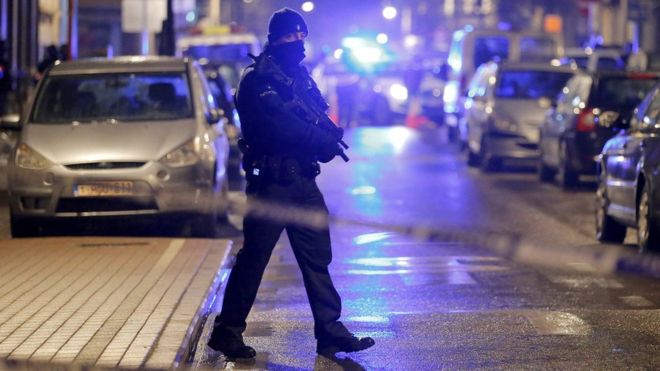ISIS Attack on Belgium
On March 22, a heinous terrorist attack in Brussels shocked the world.
The tragic terrorist attacks that took place in Brussels on March 22 shook the world.
Many nations have felt the sting of terrorism in the past few years; the most publicized being the attacks in Paris in November 2015, the San Bernardino shooting in California in December 2015, and the many “lone wolf attacks,” such as the Navy yard shooting in Chattanooga this past summer. The external and domestic terrorism for the most part have been stemming from the most infamous terrorist syndicate to date: ISIS.
The Islamic State (ISIS) has been targeting European and North American countries such as France, Belgium, Denmark, the U.K., and the U.S.A. for participating in the coalition against the organization through the airstrikes on their home region, which is mainly between Iraq and Syria.
On Tuesday, Belgium was attacked at their international airport at the Zanventem and the Maalbeek metro station in Brussels, killing 30 and maiming over 200 people. Authorities have been carrying out raids for months due to terror threats and to avoid such attacks; unfortunately, their endeavors proved fruitless.
Now Brussels is scrambling to find linked terror suspects which may still be at large. In fact, after investigations were conducted about the attackers, Brussels has a theory that these terrorists are affiliated with the same terror ring who attacked Paris back in November, specifically Salah Absalom who was one the main organizers of the attacks. The terrorist attacks in Brussels happened immediately after Belgian investigators zeroed in on the location of Absalom, who was hiding out in a local residency.
“The Belgians have been sitting on a time bomb,” says a U.S. counter-terrorism specialist. The “time-bomb” the Belgians have been dealing with is the large number of young people leaving the small European nation to join ISIS, and it is quite possible that these young ISIS members may have returned to wreak havoc in their old home.
However, it is not just Belgium which has this problem. Many Western and Eastern countries have lost their youth to the ISIS’s radical jihadism, which explains the number of domestic terrorists afflicting the enemies of ISIS. NATO, who’s home base of operations is stationed in Brussels, has now decreed a movement of solidarity with the Belgian people. François Hollande, the president of France, has expressed his grief by saying, “I express my entire solidarity with the Belgian people. Through the Brussels attacks the whole of Europe has been hit.” President Obama had his own press conference, showing his sympathies for the Belgian people, promising more airstrikes on ISIS.
Currently, the security in Belgium has been bolstered to prevent any further attacks by locking down all metro stations, nuclear power plants, airports, shopping plazas, and any other potential targets for aspiring terrorists. The Belgian government has increased its threat level to four, the highest threat level, which allows for military action to be authorized on the streets. Along with the increased security in Belgium, major cities across the globe have put in place their own counter-terrorism measures in airports, train stations, and ports to ensure safety from other potential terror attacks.
Overall, the world is now again vigilant for the rising threat in the Middle East, and Belgium is now its newest victim. It will be interesting to see what the leaders of the world will do next combat this unyielding menace.








